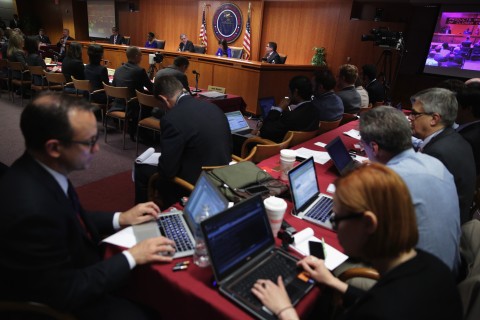-
Tips for becoming a good boxer - November 6, 2020
-
7 expert tips for making your hens night a memorable one - November 6, 2020
-
5 reasons to host your Christmas party on a cruise boat - November 6, 2020
-
What to do when you’re charged with a crime - November 6, 2020
-
Should you get one or multiple dogs? Here’s all you need to know - November 3, 2020
-
A Guide: How to Build Your Very Own Magic Mirror - February 14, 2019
-
Our Top Inspirational Baseball Stars - November 24, 2018
-
Five Tech Tools That Will Help You Turn Your Blog into a Business - November 24, 2018
-
How to Indulge on Vacation without Expanding Your Waist - November 9, 2018
-
5 Strategies for Businesses to Appeal to Today’s Increasingly Mobile-Crazed Customers - November 9, 2018
US House also votes to repeal broadband privacy rules
This week, amidst a sea of other shocking and life-altering bills, political moves, executive orders, and scandals, both the House and Senate voted on and passed a law which granted Internet Service Providers the ability to buy and sell internet users’ browsing data to the highest bidder.
Advertisement
The new rules would enable Internet service providers such as Verizon, Comcast and AT&T, to mine information they had collected from the browsing activity of their consumers for highly targeted advertising, an $83 billion market now dominated by Facebook and Google.
Last week, the Senate in a 50-48 vote chose to repeal regulations that demand ISPs to do more to protect user data than tech companies like Google or Facebook.
Yesterday, the House of Representatives voted to block landmark online privacy protections limiting how Internet service providers use and sell consumer data.
The vote is part of an extensive effort Republicans have undertaken to void an array of regulations issued during the final months of Democratic president Barack Obama’s tenure.
Fifteen Republicans joining 190 Democrats could not stop the House late Tuesday afternoon from voting to rip up broadband privacy rules passed late in the Obama administration.
If the new ruling goes into effect, those would seamlessly allow internet service providers to collect personal information from their consumers.
Democrats favoring the rule – and opposing the joint resolution – argue that a default opt-out provision would fail to protect the privacy of consumers because many of them would be unaware of their right to inform ISPs not to share their personal data.
The FCC’s sister agency, the Federal Trade Commission, can bring privacy complaints against web-based companies that aren’t ISPs, but the FTC can’t create privacy regulations. Supporters say it levels the playing field for broadband ISPs as they compete in an evolving marketplace.
According to USA Today, the House vote recorded at 215 to 205.
The vote effectively removes privacy protections from consumers.
Advertisement
Critics of the countermeasure backed by the Republicans warn that ISPs will be now free to sell customers’ private data without their consent. Representative Michael Capuano (D-Mass.) reportedly challenged the Republicans to “leave Capitol Hill for five minutes” and find “three people” who are willing to let ISPs sell their browsing histories. But if President Trump signs this new resolution, that will no longer be necessary as of December 2017.





























